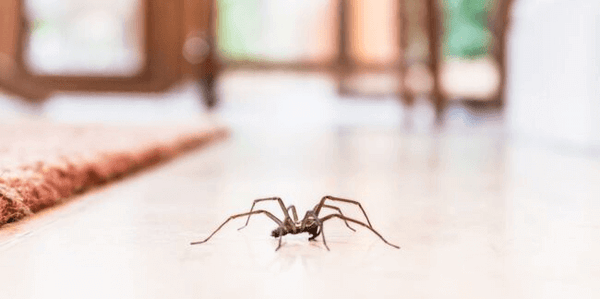Reading time: 2:12 minutes
Should I be concerned about spiders in my home?
Spiders can sometimes be feared, but in reality, they are more of a nuisance than a health hazard. In fact, their presence in a home can even be beneficial, as they repel dangerous pests such as ticks, fleas, and cockroaches, as well as disease-carrying insects. Spiders also play an important role in our ecosystem by regulating the population of insects that damage plants and crops. Therefore, experts recommend not killing them, but rather capturing them safely and releasing them outdoors, whenever possible.
However, if spiders are a common sight in your home, it's important to find an effective solution to prevent a potential infestation. If cleaning doesn't improve the situation, it's recommended to use professional spider control products to properly eliminate the pests and prevent their return. Having one or two spiders in your home shouldn't be a cause for concern, but it's important to take action if their presence becomes a regular occurrence.
Why do I have several spiders in my house?
A significant presence of spiders in your home may be a sign of a larger pest problem. Since spiders feed on other insects, their abundance may indicate an infestation. In this situation, it's recommended to act immediately and purchase specialized spider control products to effectively address the problem and restore a healthy and safe environment.
Danger risks of spiders:
It's important to remember that spiders are not aggressive toward humans, preferring to avoid contact with them. However, if they feel threatened or become trapped in places such as shoes, they may bite. Fortunately, in Canada, there is only one species of spider to fear: the black widow. The neurotoxins in their venom can cause severe muscle cramps, sweating, headaches, high blood pressure, and in exceptional cases, seizures and death. Fortunately, black widows are uncommon in Canada, and only females are dangerous to humans. Garden, dock, house, cellar, and jumping spiders, on the other hand, are harmless and represent most of the spiders we encounter in our everyday environment.

How do spiders get indoors in the first place?
As opportunistic creatures, spiders can enter your home through various openings such as cracks in your doors and windows, gaps, and other narrow spaces. They seek food, warmth, and moisture, and can even sneak inside by hiding in plants, firewood, or boxes stored in the basement or attic.
Once they have established their home, spiders begin spinning webs to reproduce in the spring and summer. Each egg sac contains thousands of eggs that hatch in just a few weeks. Although most spiders only live for a year, some species can live for more than ten years under favorable conditions.
How to get rid of spiders?
It's important to start by checking that all openings, including doors and windows, are properly sealed to prevent spiders from entering your home. Next, it's important to clean your home regularly, using a vacuum cleaner to remove webs and spiders, especially in hard-to-reach areas like cabinets and ceilings.
Additionally, it is important to maintain a clutter-free environment in closets and pantries, as spiders like to hide in boxes and bulky items.

